.
REGINA
A dull white film covers Regina’s eyes and she is slowly going blind.
The white film however is not a sentence, it’s just a diagnosis — and with your help once again we have the power to turn a difficult diagnosis into a good prognosis. Carry on reading to find out more about Regina, who was slowly losing her vision while nobody cared, then please help us help her.
One of countless strays surviving on city streets, Regina was suffering in silence until a kind person noticed her and decided to help. The gentle girl is with us now and we will be working to change her life.
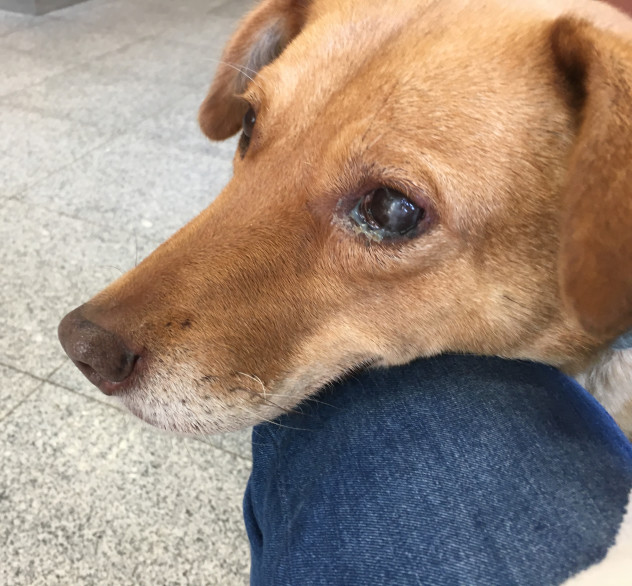
THE EYES
The vet team’s preliminary diagnosis is keratoconjunctivitis sicca (KCS), inflammation of the cornea and surrounding tissues, resulting from inadequate production of the aqueous portion of the tear film by the lacrimal and the third eyelid gland. Dogs with KCS suffer from painful, irritated eyes, frequent squinting, excessive blinking or they just hold their eyes shut. The pain and discomfort are accompanied by thick discharge, and corneal ulceration and scarring develop with no treatment. Corneal scarring looks like a dark film covering the eyes and tiny blood vessels coursing across the cornea, called neovascularization, can also be seen. If left unchecked, the condition will eventually cause reduced or total loss of vision.
Establishing the correct diagnosis is critical for selecting the most effective treatment. A series of tests are required such as a Schirmer test checking for decreased tear production, corneal staining to find out if corneal ulcers are already present, intraocular pressure to determine whether glaucoma is part of the problem, tear duct examination or flushing to ensure normal tear drainage.
If the diagnosis is confirmed the treatment for KCS will aim to stimulate tear production and to replace tear film, thereby protecting the cornea. If the treatment fails to address the problem surgical correction will be required. The complicated surgery repositions the salivary duct so that it secretes saliva onto the eyes, and can only be performed by a board-certified veterinary surgeon or ophthalmologist.
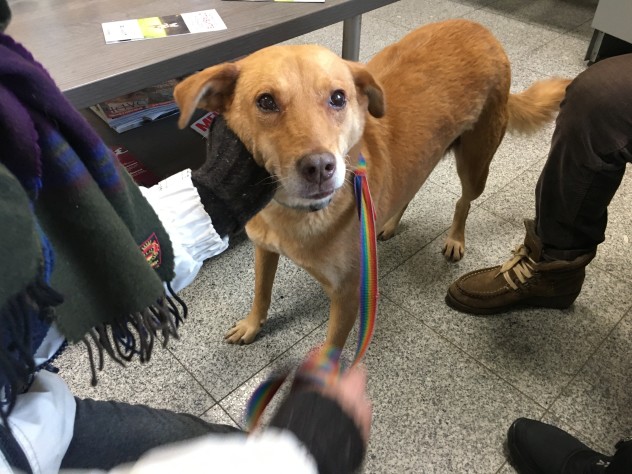
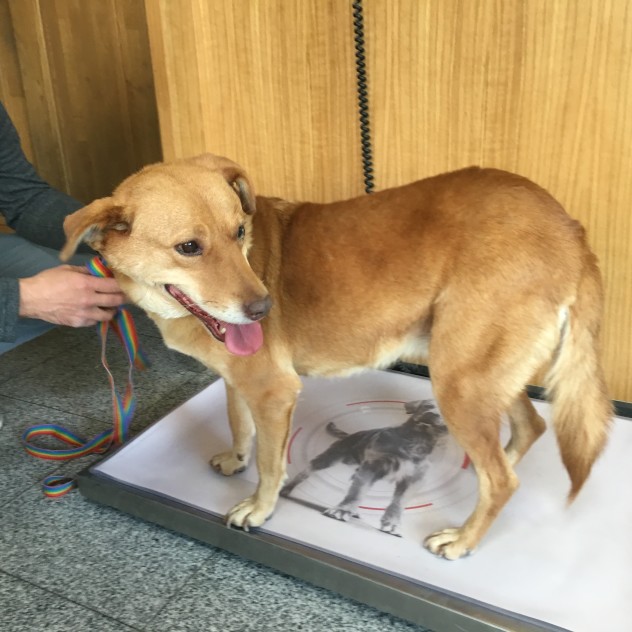
UPDATE | January 8, 2020
The performed Schirmer test, corneal staining, intraocular pressure, tear duct examination and flushing have confirmed Regina’s diagnosis — keratoconjunctivitis sicca (KCS). If left unchecked, the condition will eventually cause reduced or total loss of vision.
The long treatment we have to start now will aim to stimulate tear production and to replace tear film, thereby protecting the cornea. If the treatment fails to address the problem, then surgical correction will be required. The complicated surgery repositions the salivary duct so that it secretes saliva onto the eyes, and can only be performed by a board-certified veterinary surgeon or ophthalmologist.
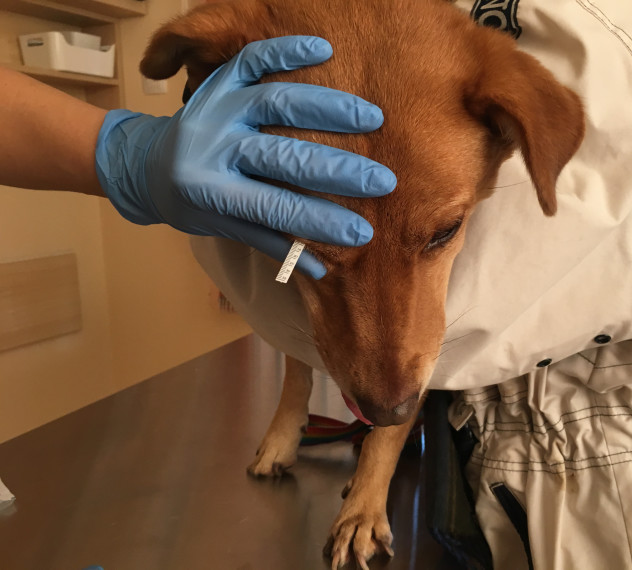
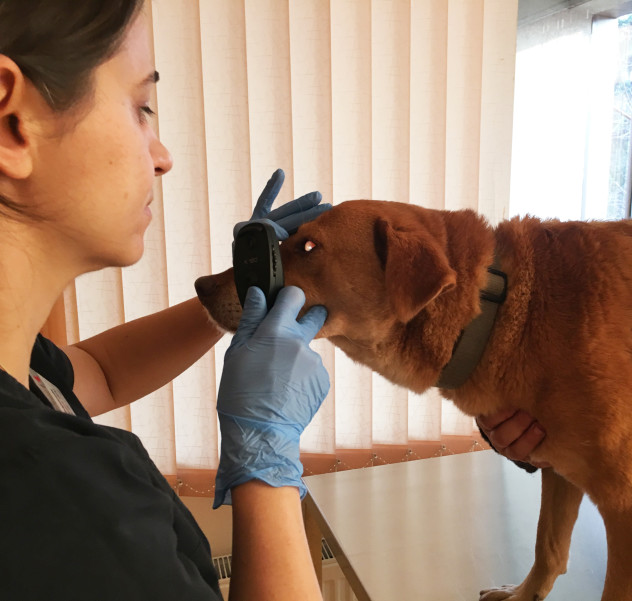
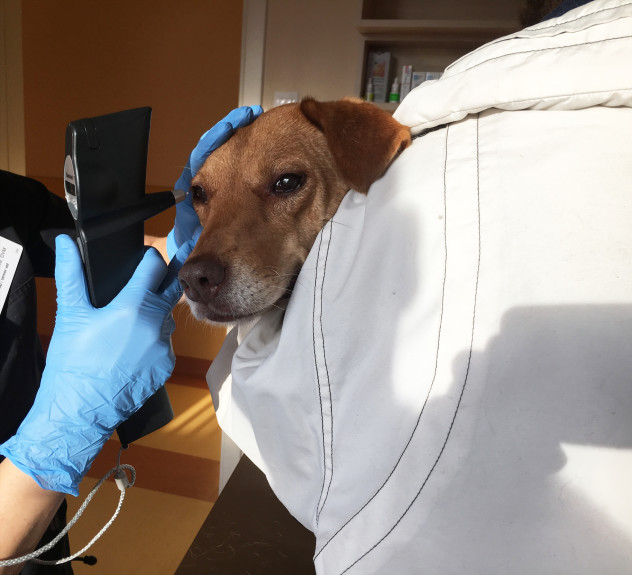
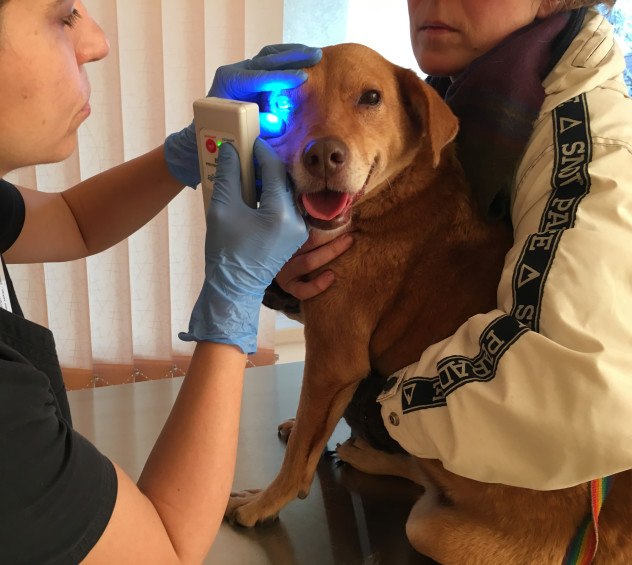
Regina is a delicate, quiet girl and and she smiles even when being examined. Please help us protect her smile and give her the life she deserves — colorful, active, seeing.
Please donate today towards the cost of the medical care that is saving Regina’s vision.
Donate with debit/credit card or Paypal, USD:![]()
Donate with debit/credit card or Paypal, EUR:![]()
Donate with debit/credit card or Paypal, GBP:![]()
* You can donate in any other currency and it will be automatically exchanged.
** Paypal occasionally has issues so please try later if you encounter a problem while using their website.





